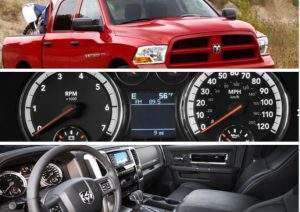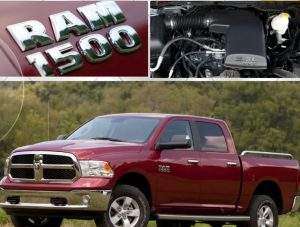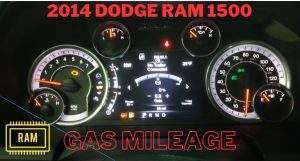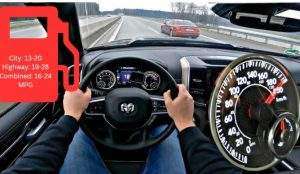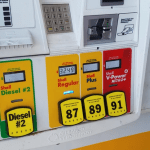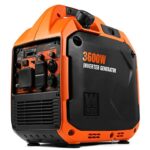When it comes to fuel economy, every driver wants to get the most out of their vehicle. The Ford 7.3 gas engine is a popular choice for truck owners, but getting the best MPG out of it can be a challenge.
Fortunately, there are several tips and tricks that you can use to improve your gas mileage and get the most out of your Ford 7.3 gas engine.
In this article, we’ll cover everything you need to know to maximize your fuel economy and save money at the pump.
Table of Contents
Understanding Fuel Efficiency
Before we dive into the specifics of getting the best MPG from your Ford 7.3 gas engine, it’s important to understand how fuel efficiency works. Fuel efficiency is measured in miles per gallon (MPG), and it’s determined by several factors including:
- Driving habits
- Vehicle weight
- Vehicle maintenance
- Tire pressure
- Fuel quality
By understanding these factors and making adjustments where necessary, you can improve your fuel efficiency and get the best MPG possible.
How to Get the Best MPG from Your Ford 7.3 Gas Engine: Tips and Tricks
We’ve seen Our fair share of Ford 7.3 gas engines that aren’t running as efficiently as they could be. However, with some proper care and attention, it’s possible to get the best MPG out of your engine.

Below are a few pointers and techniques that can assist you in accomplishing precisely that.
1. Keep Your Engine in Good Condition
Maintaining your engine on a regular basis is crucial to keep it running smoothly and efficiently. Here are some essential factors that you should bear in mind to ensure optimal engine performance:
- Regular Maintenance
- Air Filters
- Oil Changes
- Spark Plugs and Wires
- Fuel Injectors
1.1 Regular Maintenance
Make sure you’re keeping up with your engine’s maintenance schedule. This includes things like changing the oil, replacing air filters, and checking the spark plugs and wires.
1.2 Air Filters
Air filters are essential in maintaining the proper functioning of your engine. It prevents harmful particles from entering the engine. If your air filter is dirty, it can reduce airflow and make your engine work harder than it needs to. Make sure to replace your air filter regularly to keep your engine running efficiently.
1.3 Oil Changes
To ensure your engine runs without any hiccups, it’s crucial to get regular oil changes. Old oil can become contaminated with dirt and debris, which can reduce engine efficiency. Make sure to change your oil at regular intervals to keep your engine running at its best.
1.4 Spark Plugs and Wires
Spark plugs and wires are responsible for igniting the fuel in your engine’s cylinders. If they’re dirty or worn out, it can reduce engine efficiency. Make sure to check your spark plugs and wires regularly and replace them as needed.
1.5 Fuel Injectors
Fuel injectors deliver fuel to your engine’s cylinders. If they’re dirty or clogged, they can reduce engine efficiency. Make sure to have your fuel injectors cleaned or replaced regularly to keep your engine running smoothly.
2. Check Your Tire Pressure Regularly
Proper tire inflation is essential to maximizing fuel efficiency. Here’s what you need to know:
- Importance of Proper Tire Pressure
- How to Check Your Tire Pressure
- Benefits of Proper Tire Inflation
2.1 Importance of Proper Tire Pressure
Proper tire inflation reduces rolling resistance, which can improve fuel efficiency. In addition, it can also help prevent uneven tire wear and extend the life of your tires.
2.2 How to Check Your Tire Pressure
Make sure to check your tire pressure regularly, especially before long trips. You can check your tire pressure with a tire pressure gauge or at a gas station.
2.3 Benefits of Proper Tire Inflation
Maintaining proper tire inflation can have several benefits, including improved fuel efficiency, better handling, and longer-lasting tires. Make sure to keep your tires properly inflated to get the most out of your Ford 7.3 gas engine.
3.Use the Right Fuel
Using the right fuel can help improve engine efficiency. Here’s what you should know:
- Choosing the Right Octane
- Avoiding Ethanol
- Top Tier Gasoline
3.1 Choosing the Right Octane
Make sure to use the appropriate octane for your engine. Using a lower octane fuel than recommended can reduce engine efficiency and cause damage to your engine.
3.2 Avoiding Ethanol
Ethanol is a common additive in gasoline, but it can reduce engine efficiency. Consider using gasoline that doesn’t contain ethanol to improve engine efficiency.
3.3 Top Tier Gasoline
Top tier gasoline contains higher levels of detergents that can help keep your engine clean. Consider using top tier gasoline to improve engine efficiency and reduce engine deposits.
4. Avoid Heavy Loads and Excessive Idling
Reducing excess weight and idling time can help improve engine efficiency. Here’s what you need to know:
4.1 Minimizing Excess Weight
Carrying excess weight in your vehicle can reduce fuel efficiency. Make sure to only carry what you need to reduce excess weight and improve engine efficiency.
4.2 Turning off the engine
Idling can waste fuel and reduce engine efficiency. Make sure to turn off your engine if you’ll be idling for more than a few minutes.
4.3 Idling in Extreme Temperatures
In extreme temperatures, idling your engine for an extended period can waste fuel and reduce engine efficiency. Let me share with you some important things to keep in mind:
- Use Remote Start
- Park in a Garage or Shade
- Limit Idling Time
5. Drive Smoothly and Avoid Hard Acceleration
How you drive can also affect your engine’s efficiency. Consider these key points:
- Smooth Acceleration
- Avoid Speeding
5.1 Smooth Acceleration
Avoid hard acceleration and abrupt stops, as they can reduce engine efficiency. Instead, try to accelerate smoothly and maintain a consistent speed.
5.2 Avoid Speeding
Driving at high speeds can reduce fuel efficiency. Try to maintain a steady speed and avoid excessive speeding to improve fuel economy.
6. Use Cruise Control When Possible
Using cruise control on long trips can help improve fuel efficiency. Here’s why:
- Maintaining a Steady Speed
- Reducing Braking and Acceleration
6.1 Maintaining a Steady Speed
Cruise control can help maintain a consistent speed, which can improve fuel efficiency.
6.2 Reducing Braking and Acceleration
Cruise control can also help reduce excessive braking and acceleration, which can waste fuel and reduce engine efficiency.
Conclusion
By following these tips and tricks, you can get the best MPG from your Ford 7.3 gas engine. Regular maintenance, proper tire inflation, using the right fuel, reducing excess weight and idling, driving smoothly, and using cruise control can all help improve engine efficiency and fuel economy.
With a little care and attention, you can keep your engine running at its best and save money on gas in the long run.
FAQs
Q: What is the best way to improve the MPG of my Ford 7.3 gas engine?
Answer: Keeping up with regular maintenance, checking tire pressure, using the right fuel, avoiding excessive weight and idling, driving smoothly, and using cruise control can all help improve engine efficiency and fuel economy.
Q: Can using a higher octane fuel improve my engine’s efficiency?
Answer: Not necessarily. Using a higher octane fuel than recommended can actually reduce engine efficiency and cause damage to your engine. Stick to the recommended octane for your engine.
Q: How frequently do I need to examine my tire pressure?
Answer: You should check your tire pressure at least once a month, as well as before long trips.

